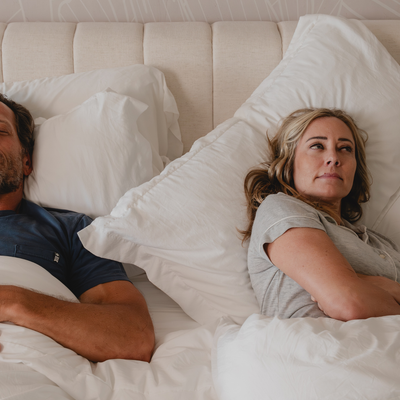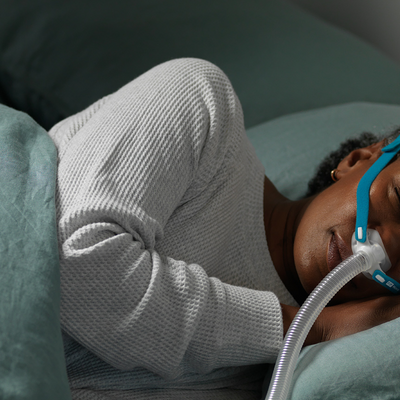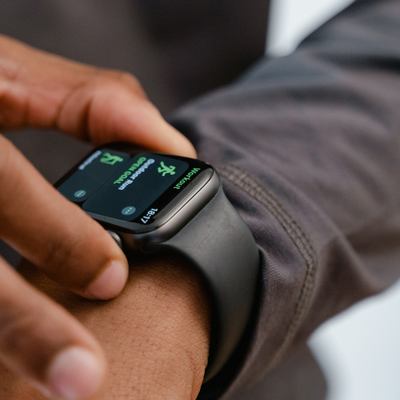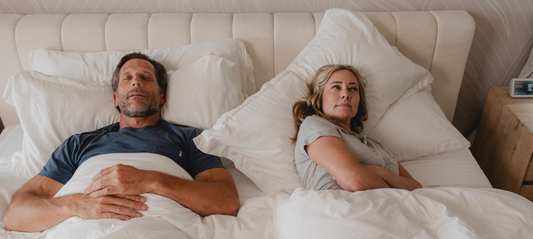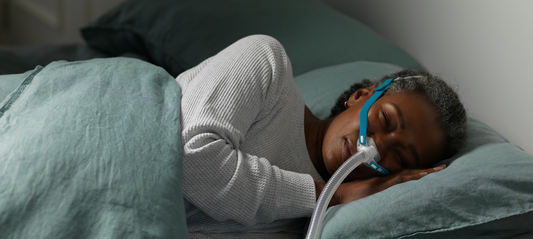Sleep. It's the one thing we can't live without and yet, it seems to elude so many of us. We've all heard that we need at least 8 hours of sleep a night, but what if we're spending that much time in bed and still feeling exhausted the next day? That's where the concept of time in bed versus true sleep time comes in.
Time in Bed vs True Sleep Time
Simply put, time in bed is the amount of time we spend lying down, while true sleep time is the amount of time we spend in deep, restorative sleep. You might think that the longer you spend in bed, the more sleep you'll get, but that's not always the case. For instance, if you have sleep apnea, you could be waking up every 3 minutes (for some even every 30 seconds!), even though you're technically still in bed. So, even though you may have spent 8 hours in bed, you may only have gotten a fraction of that time in restful sleep.
Let's compare!
Now, let's compare this scenario to being woken up by a 3-year-old or a newborn. We all know how difficult it can be to get a full night's sleep when you have young children. You might spend 8 hours in bed, but if you're being woken up every 30 minutes, you're not getting a lot of true sleep time. However, in this case, the interruptions are often unavoidable and temporary. With time, your child will (hopefully!) start sleeping through the night, and you'll be able to get more uninterrupted sleep.
On the other hand, if you have sleep apnea, the interruptions are chronic and can have a serious impact on your health. Sleep apnea is a common condition that affects millions of people, and yet, many of us don't even know we have it. It's characterized by loud snoring, pauses in breathing, and gasping for air during sleep. If left untreated, sleep apnea can lead to high blood pressure, heart disease, and stroke. To read more about the comorbidities of sleep apnea, click here.
What are your options?
That's why it's so important to get a proper diagnosis if you suspect you might have sleep apnea. And, luckily, getting a diagnosis is easier than ever with the help of home sleep studies. Lofta offers an affordable, convenient home sleep study kit that you can use in the comfort of your own home. The kit includes a small, portable device that measures your breathing, heart rate, and oxygen levels during sleep. The data is then uploaded to Lofta's cloud-based platform, where a board-certified sleep physician reviews it and provides a diagnosis.
Once you have a diagnosis, there are a variety of treatment options available. The most common treatment for sleep apnea is continuous positive airway pressure (CPAP) therapy, which involves wearing a mask over your nose or mouth during sleep to keep your airway open. Other treatments include oral appliances, positional therapy, and surgery in severe cases.
In addition to treatment, there are also lifestyle changes you can make to improve the quality of your sleep. For example, maintaining a regular sleep schedule, creating a comfortable sleep environment, avoiding alcohol and sedatives before bed, and losing weight can all help reduce the symptoms of sleep apnea.
In conclusion, while spending more time in bed might seem like the solution to feeling tired during the day, it's not always effective if the sleep is frequently interrupted. If you suspect you might have sleep apnea, it's important to get a proper diagnosis and treatment. Home sleep studies like the one offered by Lofta make it easier than ever to get the help you need. Remember, quality sleep is essential for our physical and mental well-being, so don't hesitate to take the first step towards better sleep today!



